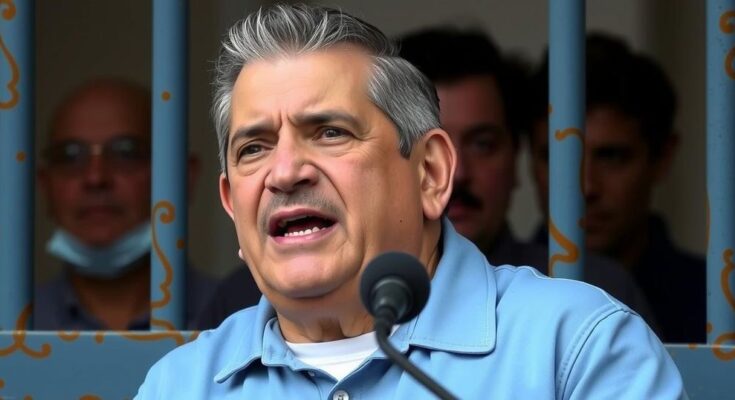Venezuela has announced the release of 146 election protesters as part of a broader initiative that has seen 1,515 individuals freed following post-election unrest. This announcement comes just prior to President Nicolás Maduro’s swearing-in for a disputed third term amidst allegations of electoral fraud and human rights abuses. The opposition, led by Edmundo Gonzalez, continues to contest the legitimacy of Maduro’s victory and has gained support from the international community.
In a significant move following widespread unrest, the Venezuelan government, led by President Nicolás Maduro, has announced the release of 146 election protesters from prison, as confirmed by Attorney General Tarek Saab. This release is part of a broader campaign in which a total of 1,515 individuals detained during post-election protests have been freed. The announcement comes just days ahead of Maduro’s inauguration for a contentious third term, amidst claims of electoral fraud and an ongoing human rights crisis.
The governmental response follows allegations that Maduro, trailing in pre-election polls, declared victory without providing detailed vote counts after the July 28 election. This provoked significant opposition, with many claiming that the election was compromised and that actual results indicated opposition candidate Edmundo Gonzalez was the true victor. Despite being accused of human rights violations and facing backlash from the international community, Maduro’s administration has maintained its grip on power, with the highest court and electoral authority affirming the results.
The political landscape remains fraught, as the opposition, backed by various countries, including the United States, continues to challenge the legitimacy of Maduro’s regime. Following an arrest warrant issued by a Venezuelan court for Gonzalez, who accused the government of conspiracy and usurpation of power, he fled to Spain. Still, he has asserted his intention to return to Venezuela, seeking recognition as the legitimate leader and urging the military to support his claims.
The Maduro government continues to face harsh criticism for its alleged repressive actions against dissent, with reports indicating that up to 2,000 individuals were detained and several demonstrators reportedly killed amid the protests. The socio-economic turmoil exacerbated by these political tensions has prompted millions of Venezuelans to flee the country, seeking refuge from a deteriorating situation.
As the international community closely monitors these developments, it remains uncertain what strategies will effectively deter Maduro from assuming office for a third term, despite ongoing sanctions and escalating calls for political reform.
The political climate in Venezuela has been marked by instability and widespread protests, particularly following the controversial presidential election held on July 28, 2023. Nicolás Maduro’s administration has faced allegations of electoral malpractice, leading to civil unrest and crackdowns on demonstrators. Amidst claims that a significant portion of the electorate opposed his rule, the government has opted for a combination of repression and limited concessions, such as the recent releases of political prisoners. The backdrop of economic despair and humanitarian crises has fueled mass emigration, putting tremendous pressure on both the government and opposition parties.
In summary, the release of the 146 protesters by the Venezuelan government signifies an attempt to quell dissent ahead of a contentious presidential inauguration. This political maneuver highlights the intricate dynamics between the Maduro administration and the opposition, which continues to challenge the legitimacy of the recent election results. As Venezuela navigates its ongoing crisis, the implications of these developments will likely resonate within the international community and among the citizens impacted by this turbulent political landscape.
Original Source: www.aljazeera.com




